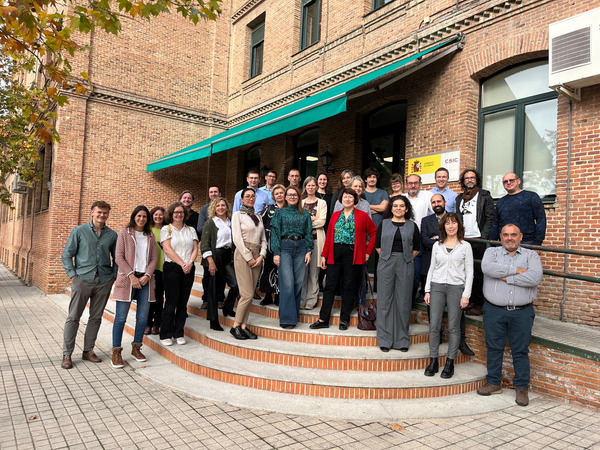On November 26 and 27, experts and researchers from 18 scientific and agricultural organisations across Europe convened in Madrid, Spain, to advance the OH-FINE project. This initiative seeks to collaboratively generate and share knowledge between European researchers and producers. OH-FINE aims to identify efficient, healthy, organic, and sustainable alternatives for food production on farms. The knowledge developed through the project will be widely disseminated and shared on a broader scale.
Building a pan-European learning community
One of the strengths of this project is to build on existing farmer capacity by designing and initiating a pan-European organic farming learning community, taking into account consumer needs and changes in the food market. To this end, a framework of organic farming knowledge and practices will be developed. This means that practical knowledge will be collected, shared and disseminated in an accessible way to farmers and other stakeholders on topics such as cereals, oilseeds, protein crops and livestock management. The project will also develop a platform, which will include a decision support system for farmers, consumers and policymakers.
Five case study areas across Europe
The methodology and tools developed by the OH-FINE project will be tested and validated in five case study areas across Europe: Bulgaria, Ireland, Lithuania, Poland and Spain. In each of these countries, there will be 20 participating farms. In addition, a virtual community of farmers and advisors will be created in each country, who will be part of the European learning community. All training and information materials will be made available in the languages of the project partners.
About the project
OH-FINE has a duration of 48 months and is funded by the European Union in the framework of Horizon Europe, the European Union’s Research and Innovation Programme 2021-2027, and by SERI, the Swiss Secretariat for Education, Research and Innovation. The project is coordinated by the Institute of Natural Resources and Agrobiology of Salamanca (IRNASA), which is part of the Spanish National Research Council (CSIC).

 tap and then scroll down to the Add to Home Screen command.
tap and then scroll down to the Add to Home Screen command.